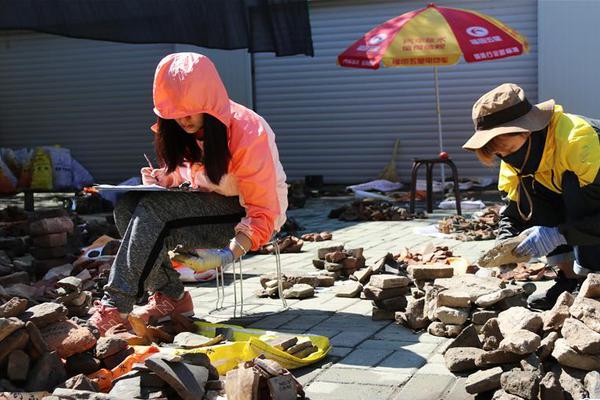In the lightless deep sea,Pehredaaar Again (2025) Hindi Web Series an octopus settlement thrives atop a tranquil volcano.
Scientists at the Monterey Bay Aquarium Research Institute sent a deep ocean robot to an "octopus garden" located some 10,500 feet (3,200 meters) below the ocean's surface, in a dark marine region dubbed the "midnight zone." Here, the only natural light comes from glowing critters.
The deep sea scientists captured high-resolution imagery, shown below, on the recent journey to the Davidson Seamount, located far off the California coast. (More footage will be added as it becomes available.) They spotted a whopping 5,718 octopuses over a six-acre area, including 4,707 females nesting over their eggs.
The octopus species, M. robustus, might be drawn to the warmth at this specific location, the researchers speculate. Warm water still vents from the extinct volcano, perhaps speeding up the development of the growing embryos, a process that can take years in the profound cold of the deeps. The brooding females were "scattered across hydrothermal springs that emanated warmth, barely visible by the hazy, shimmering boundary between cold ambient seawater and warm venting fluid – like a mirage," the Monterey Bay Aquarium Research Institute wrote in a release. "Dead octopuses and lone embryos were quickly scavenged by other deep-sea species before being replaced by new arrivals."
The deep sea research was published in the peer-reviewed journal Science Advances.
 Footage of an expansive octopus colony on the Davidson Seamount. Credit: MBARI
Footage of an expansive octopus colony on the Davidson Seamount. Credit: MBARI  A remotely operated vehicle (ROV) surrounded by hundreds of octopi. Credit: MBARI
A remotely operated vehicle (ROV) surrounded by hundreds of octopi. Credit: MBARI Deep sea exploration missions are vital. Scientists want to shine a light — literally and figuratively — on what's down there. The implications of knowing are incalculable, particularly as deep-sea mineral prospectors prepare to run tank-like industrial equipment across parts of the seafloor. For example, research expeditions have found that ocean life carries great potential for novel medicines. "Systematic searches for new drugs have shown that marine invertebrates produce more antibiotic, anti-cancer, and anti-inflammatory substances than any group of terrestrial organisms," notes the National Oceanic and Atmospheric Administration.
 The location of the expansive octopus garden off the coast of Central California. Credit: MBARI
The location of the expansive octopus garden off the coast of Central California. Credit: MBARI  Brooding octopi observed over 10,000 feet beneath the ocean surface Credit: MBARI
Brooding octopi observed over 10,000 feet beneath the ocean surface Credit: MBARI Want more scienceand tech news delivered straight to your inbox? Sign up for Mashable's Light Speed newslettertoday.
Expect more deep-sea discoveries. "We always discover stuff when we go out into the deep sea. You're always finding things that you haven't seen before," Derek Sowers, an expedition lead for NOAA Ocean Exploration, told Mashable last year.
(Editor: {typename type="name"/})
 Best Hydro Flask deal: Save $10 on a 24
Best Hydro Flask deal: Save $10 on a 24
 Nissan and Honda to slash China output in latest setback for Japanese carmakers · TechNode
Nissan and Honda to slash China output in latest setback for Japanese carmakers · TechNode
 Domestic trips recorded during China’s Qingming festival up over 10% from 2019 level · TechNode
Domestic trips recorded during China’s Qingming festival up over 10% from 2019 level · TechNode
 Jack Ma praises Alibaba’s changes in the past year under new chairman and CEO · TechNode
Jack Ma praises Alibaba’s changes in the past year under new chairman and CEO · TechNode
 The Sound and the “Furious”
The Sound and the “Furious”
Hurricane Laura's impact lingered with nightmarish mosquito swarms
 After Hurricane Laura hit land in the southern United States in late August and devastated the Louis
...[Details]
After Hurricane Laura hit land in the southern United States in late August and devastated the Louis
...[Details]
Tencent developing mobile version of hit title Palworld: report · TechNode
 Tencent is developing two mobile games akin to the popular title Palworld, utilizing its subsidiarie
...[Details]
Tencent is developing two mobile games akin to the popular title Palworld, utilizing its subsidiarie
...[Details]
JD shares surge after Q4 revenue beats expectations and flood of new users join · TechNode
 Shares in the online retailer JD surged nearly 6% on Thursday’s Hong Kong morning trade, after the c
...[Details]
Shares in the online retailer JD surged nearly 6% on Thursday’s Hong Kong morning trade, after the c
...[Details]
Chinese GenAI venture raises $14 million, claims itself akin to Sora · TechNode
 Chinese GenAI startup AIsphere, aiming to be as powerful as Sora technically within six months, anno
...[Details]
Chinese GenAI startup AIsphere, aiming to be as powerful as Sora technically within six months, anno
...[Details]
 Arthur Goldhammer ,May 8, 2017 Robin Trium
...[Details]
Arthur Goldhammer ,May 8, 2017 Robin Trium
...[Details]
Volkswagen, Xpeng expand electric vehicle partnership · TechNode
 Volkswagen and Xpeng Motors have inked a deal to develop a high-performance electrical/electronic ar
...[Details]
Volkswagen and Xpeng Motors have inked a deal to develop a high-performance electrical/electronic ar
...[Details]
PDD’s cost of revenue nearly tripled last year as Temu expanded aggressively · TechNode
 Temu parent PDD reported a 123% year-on-year revenue jump amounting to RMB 89 billion ($12 billion)
...[Details]
Temu parent PDD reported a 123% year-on-year revenue jump amounting to RMB 89 billion ($12 billion)
...[Details]
Nissan and Honda to slash China output in latest setback for Japanese carmakers · TechNode
 Nissan Motor and Honda Motor are planning to slash their annual vehicle output by roughly 30% and 20
...[Details]
Nissan Motor and Honda Motor are planning to slash their annual vehicle output by roughly 30% and 20
...[Details]
Dyson V8 Plus cordless vacuum: $120 off at Amazon
 SAVE 26%:As of May 19, you can get the Dyson V8 Plus cordless vacuum for just $349.99, down from $46
...[Details]
SAVE 26%:As of May 19, you can get the Dyson V8 Plus cordless vacuum for just $349.99, down from $46
...[Details]
China’s EHang secures world’s first production certificate for flying taxis · TechNode
 Chinese flying car manufacturer EHang has received a production certification (PC) for one of its pa
...[Details]
Chinese flying car manufacturer EHang has received a production certification (PC) for one of its pa
...[Details]
The best day to book your flight, according to Google

Taiwan’s chip industry rapidly resumes operations after recent earthquake · TechNode

接受PR>=1、BR>=1,流量相当,内容相关类链接。